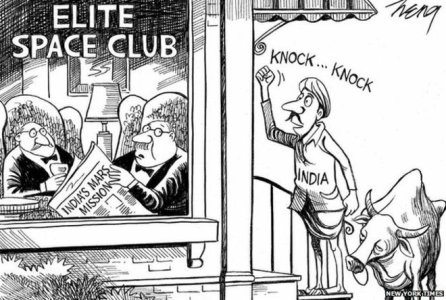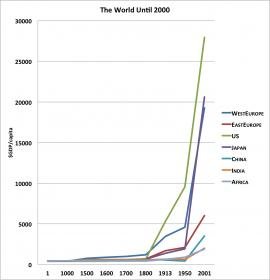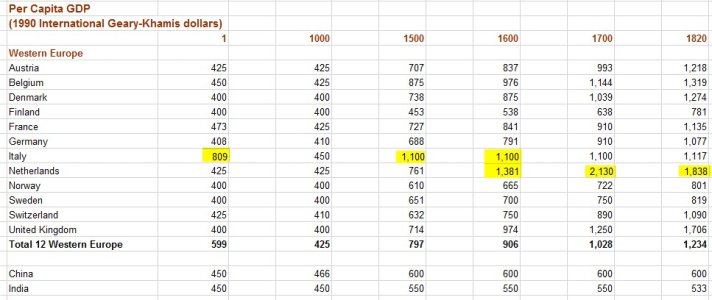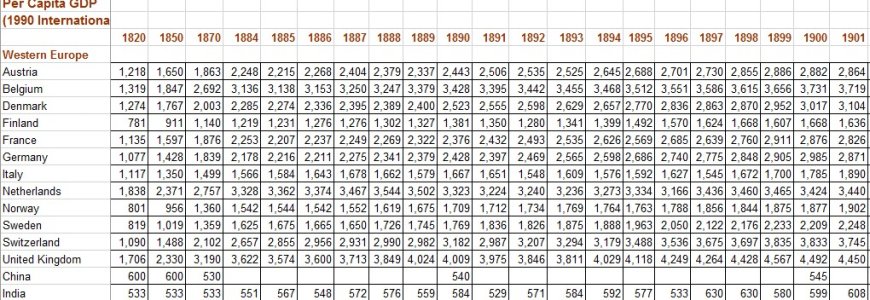Abdullah719
T20I Captain
- Joined
- Apr 16, 2013
- Runs
- 44,825
"You'd think the British in India were like Nazis, but we did much good": Daily Mail columnist
The Marxist notion that empires were all bad and colonialism is invariably wicked and economically exploitative put down roots long ago in our major universities.
So successful have these critics of empire been in spreading their ideas that I suspect most people under 40 now subscribe to them, even if they are politically moderate.
Of course, very few of them know much about imperial history, and so are persuaded easily enough that Britain was guilty of war crimes in maintaining a vast and allegedly repressive empire.
This week has seen the 70th anniversary of Indian independence, and of partition — the separation of British India into what is now India and Pakistan. In the process, millions of people died in an ethnic bloodbath.
Empire
According to most programmes and interviews I have heard on the BBC — which has devoted an enormous amount of airtime to the anniversary — the responsibility for the horrors should be squarely laid at Britain's door.
Again and again I have heard that British policy in India was to 'divide and rule'. If Muslims turned on Hindus and Sikhs, and vice-versa, it was very largely our fault.
The high watermark of this self-flagellation came in an hour-long Newsnight special on BBC 2 on Tuesday in front of a studio audience. I suppose 20 people must have spoken. Many blamed Britain. None had a single positive thing to say about empire, and several were highly critical of it.
In particular, three female academics (one of them, I have to report, with blue hair) agreed that the British Empire in India was a thoroughly bad thing, while a male academic from Birmingham City University went so far in his criticisms he might have been talking about Nazi Germany.
The moderator Kirsty Wark, whom we may safely assume shares such views, welcomed them with a sort of ecstatic look on her face that reminded me of a person in the throes of religious rapture. She trotted out the old canard of 'divide and rule' as though it were an established fact.
Why didn't the BBC ask someone onto this ludicrously one-sided programme to make the point that not everything the British did in India was bad, and some things were even good?
They could have invited Lawrence James, who has written a monumental and balanced history of the Raj, or Jan Morris, still hale and hearty at 90, whose trilogy about the British Empire hasn't been surpassed. Instead of which we had invective, criticism and unremitting negativity.
So there you have it. Our national broadcaster has decided that the British Empire in India was repressive, exploitative or inept, and no longer bothers even to go through the motions of considering an alternative view.
Well, let me put one now. It is offensive and simple-minded to blacken all the enlightened statesmen and altruistic officials who served in India. My father was born in British India, where his own father was a businessman and his mother had been a headmistress. I don't believe they were pawns in an evil regime.
Let me open my case by invoking the writer George Orwell, who was a keen critic of empire as a result of his experience as a young policeman in Burma. But even he conceded that when one looked at a map of Asia over 70 years ago, most of the railways were in India.
There were more than 40,000 miles of them when the British left, and an economy which, in 1947, was the 12th largest industrial power in the world. More important, the British bequeathed a parliamentary democracy, a free and robust Press, independent courts — and of course cricket, at which game India and Pakistan regularly beat us.
India itself, being composed of ethnically diverse peoples with numerous different languages, would not exist had it not been for the Raj. Somehow it has held together as have its institutions, though Pakistan has been less fortunate.
Of course we did terrible things in India, which was partly subjugated by force of arms in a series of battles from Plassey to Delhi, none of which find their way on to any modern school syllabus.
British revenge immediately after the 1857 mutiny (when Bengal soldiers attacked their British masters) was repellent — as were the atrocities which had been visited on the colonial rulers by the rebels.
After the mutiny, the East India Company, which had directed the affairs of the sub-continent, yielded to the colonial authorities, and to rule by the incorruptible and high-minded Indian Civil Service.
But even the East India Company had not been all bad. Under its rule, the practice of suttee — the burning of Hindu widows — was outlawed in 1827, which was surely a mark of progress.
Democratic
After 1857, five universities were set up by the authorities, including Calcutta, which, by 1900, was the world's largest university. Many wealthy Indians were educated in Britain, including Nehru, the first post-independence prime minister of India, who attended Harrow School and Cambridge University.
My point is that the British Empire in India was a huge and diverse enterprise spanning two centuries, incorporating good and bad, though rather more good than bad as time went on.
The idea that the Raj amounted to a kind of Nazi occupation is insanely far-fetched. In the late 19th and early 20th century, there were usually fewer than 100,000 British soldiers and officials in a country of 300 million. It was light-touch government in which an increasing number of Indian officials willingly cooperated. Most ordinary Indians in the countryside (where the majority lived) probably never saw a white face. About a third of British India was directly administered by local princes.
No doubt there was some racism and a great deal of misplaced arrogance on the part of the British, but there was also the rule of law and the creation of democratic institutions which have persisted to this day.
Horrendous
As for the charge so often repeated on the BBC that the British were responsible for the horrors of partition, such a view is only sustainable in the narrowest sense.
The colossally vain Lord Mountbatten, appointed Britain's final Viceroy in February 1947, certainly hurried the process of decolonisation, and agreed too readily to the insistence by Nehru and Muhammad Ali Jinnah, the Muslim leader fighting for an independent Pakistan, that British India should be divided.
In the end, India was partitioned not because the British wanted it to be, but because its Hindu and Muslim politicians insisted that it should be, and the colonial authorities were no longer in any position to refuse. We shouldn't primarily be held responsible for horrendous ethnic cleansing.
The suggestion that the British deliberately pursued the policy of 'divide and rule' is lazily repeated by people who usually know little about the history of British India.
These last few days, aided and abetted by Kirsty Wark and her ilk at the BBC, have been an orgy of blaming and shaming by people who either have an agenda (all empires are evil) or simply don't know what they are talking about.
That our national broadcaster should have orchestrated this feast of ignorance and misinformation is unforgivable, though hardly surprising. How extraordinary, how utterly amazing, that so many should have forgotten what was achieved by the British in India that we can be easily gulled by the BBC.
http://www.dailymail.co.uk/debate/article-4797818/You-d-think-British-India-like-Nazis.html
The Marxist notion that empires were all bad and colonialism is invariably wicked and economically exploitative put down roots long ago in our major universities.
So successful have these critics of empire been in spreading their ideas that I suspect most people under 40 now subscribe to them, even if they are politically moderate.
Of course, very few of them know much about imperial history, and so are persuaded easily enough that Britain was guilty of war crimes in maintaining a vast and allegedly repressive empire.
This week has seen the 70th anniversary of Indian independence, and of partition — the separation of British India into what is now India and Pakistan. In the process, millions of people died in an ethnic bloodbath.
Empire
According to most programmes and interviews I have heard on the BBC — which has devoted an enormous amount of airtime to the anniversary — the responsibility for the horrors should be squarely laid at Britain's door.
Again and again I have heard that British policy in India was to 'divide and rule'. If Muslims turned on Hindus and Sikhs, and vice-versa, it was very largely our fault.
The high watermark of this self-flagellation came in an hour-long Newsnight special on BBC 2 on Tuesday in front of a studio audience. I suppose 20 people must have spoken. Many blamed Britain. None had a single positive thing to say about empire, and several were highly critical of it.
In particular, three female academics (one of them, I have to report, with blue hair) agreed that the British Empire in India was a thoroughly bad thing, while a male academic from Birmingham City University went so far in his criticisms he might have been talking about Nazi Germany.
The moderator Kirsty Wark, whom we may safely assume shares such views, welcomed them with a sort of ecstatic look on her face that reminded me of a person in the throes of religious rapture. She trotted out the old canard of 'divide and rule' as though it were an established fact.
Why didn't the BBC ask someone onto this ludicrously one-sided programme to make the point that not everything the British did in India was bad, and some things were even good?
They could have invited Lawrence James, who has written a monumental and balanced history of the Raj, or Jan Morris, still hale and hearty at 90, whose trilogy about the British Empire hasn't been surpassed. Instead of which we had invective, criticism and unremitting negativity.
So there you have it. Our national broadcaster has decided that the British Empire in India was repressive, exploitative or inept, and no longer bothers even to go through the motions of considering an alternative view.
Well, let me put one now. It is offensive and simple-minded to blacken all the enlightened statesmen and altruistic officials who served in India. My father was born in British India, where his own father was a businessman and his mother had been a headmistress. I don't believe they were pawns in an evil regime.
Let me open my case by invoking the writer George Orwell, who was a keen critic of empire as a result of his experience as a young policeman in Burma. But even he conceded that when one looked at a map of Asia over 70 years ago, most of the railways were in India.
There were more than 40,000 miles of them when the British left, and an economy which, in 1947, was the 12th largest industrial power in the world. More important, the British bequeathed a parliamentary democracy, a free and robust Press, independent courts — and of course cricket, at which game India and Pakistan regularly beat us.
India itself, being composed of ethnically diverse peoples with numerous different languages, would not exist had it not been for the Raj. Somehow it has held together as have its institutions, though Pakistan has been less fortunate.
Of course we did terrible things in India, which was partly subjugated by force of arms in a series of battles from Plassey to Delhi, none of which find their way on to any modern school syllabus.
British revenge immediately after the 1857 mutiny (when Bengal soldiers attacked their British masters) was repellent — as were the atrocities which had been visited on the colonial rulers by the rebels.
After the mutiny, the East India Company, which had directed the affairs of the sub-continent, yielded to the colonial authorities, and to rule by the incorruptible and high-minded Indian Civil Service.
But even the East India Company had not been all bad. Under its rule, the practice of suttee — the burning of Hindu widows — was outlawed in 1827, which was surely a mark of progress.
Democratic
After 1857, five universities were set up by the authorities, including Calcutta, which, by 1900, was the world's largest university. Many wealthy Indians were educated in Britain, including Nehru, the first post-independence prime minister of India, who attended Harrow School and Cambridge University.
My point is that the British Empire in India was a huge and diverse enterprise spanning two centuries, incorporating good and bad, though rather more good than bad as time went on.
The idea that the Raj amounted to a kind of Nazi occupation is insanely far-fetched. In the late 19th and early 20th century, there were usually fewer than 100,000 British soldiers and officials in a country of 300 million. It was light-touch government in which an increasing number of Indian officials willingly cooperated. Most ordinary Indians in the countryside (where the majority lived) probably never saw a white face. About a third of British India was directly administered by local princes.
No doubt there was some racism and a great deal of misplaced arrogance on the part of the British, but there was also the rule of law and the creation of democratic institutions which have persisted to this day.
Horrendous
As for the charge so often repeated on the BBC that the British were responsible for the horrors of partition, such a view is only sustainable in the narrowest sense.
The colossally vain Lord Mountbatten, appointed Britain's final Viceroy in February 1947, certainly hurried the process of decolonisation, and agreed too readily to the insistence by Nehru and Muhammad Ali Jinnah, the Muslim leader fighting for an independent Pakistan, that British India should be divided.
In the end, India was partitioned not because the British wanted it to be, but because its Hindu and Muslim politicians insisted that it should be, and the colonial authorities were no longer in any position to refuse. We shouldn't primarily be held responsible for horrendous ethnic cleansing.
The suggestion that the British deliberately pursued the policy of 'divide and rule' is lazily repeated by people who usually know little about the history of British India.
These last few days, aided and abetted by Kirsty Wark and her ilk at the BBC, have been an orgy of blaming and shaming by people who either have an agenda (all empires are evil) or simply don't know what they are talking about.
That our national broadcaster should have orchestrated this feast of ignorance and misinformation is unforgivable, though hardly surprising. How extraordinary, how utterly amazing, that so many should have forgotten what was achieved by the British in India that we can be easily gulled by the BBC.
http://www.dailymail.co.uk/debate/article-4797818/You-d-think-British-India-like-Nazis.html











